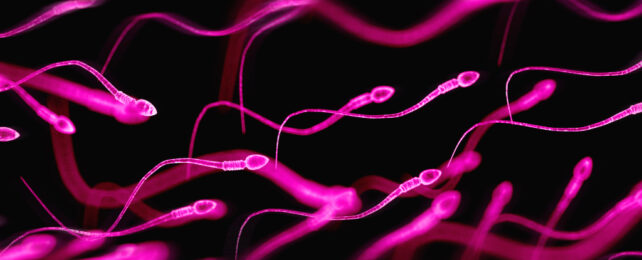Imagine itching, burning, swelling, or even struggling to breathe just moments after sex.
For a small but growing number of women, that's not an awkward anecdote – it's a medical condition. It's called seminal plasma hypersensitivity (SPH) – an allergy to semen.
This rare but underdiagnosed allergy isn't triggered by sperm cells, but by proteins in the seminal plasma – the fluid that carries sperm. First documented in 1967, when a woman was hospitalised after a "violent allergic reaction" to sex, SPH is now recognised as a type 1 hypersensitivity, the same category as hay fever, peanut allergy, and cat dander.
Symptoms range from mild to severe. Some women experience local reactions: burning, itching, redness, and swelling of the vulva or vagina. Others develop full-body symptoms: hives, wheezing, dizziness, runny nose and even anaphylaxis, a potentially life-threatening immune response.

Until 1997, SPH was thought to affect fewer than 100 women globally. But a study led by allergist Jonathan Bernstein found that among women reporting postcoital symptoms, nearly 12% could be classified as having probable SPH.
Related: Sexual Competition May Actually Boost Men's Semen Quality
I conducted a small, unpublished survey in 2013 and found a similar 12% rate. The true figure may be higher still. Many cases go unreported, misdiagnosed, or dismissed as STIs, yeast infections, or general "sensitivity". One revealing clue: symptoms disappear when condoms are used.
A 2024 study reinforced this finding, suggesting that SPH is both more common and more commonly misdiagnosed than previously believed.
The problem isn't the sperm
The main allergen appears to be prostate-specific antigen (PSA): a protein found in all seminal plasma, not just that of a particular partner. In other words, women can develop a reaction to any man's semen, not just their regular partner's.

There's also evidence of cross-reactivity. For example, Can f 5, a protein found in dog dander, is structurally similar to human PSA. So women allergic to dogs may find themselves reacting to semen too. In one unusual case, a woman with a Brazil nut allergy broke out in hives after sex, probably due to trace nut proteins in her partner's semen.
Diagnosis begins with a detailed sexual and medical history, often followed by skin prick testing with the partner's semen or blood tests for PSA-specific antibodies (IgE).
In my own research involving symptomatic women, we demonstrated that testing with washed spermatozoa, free from seminal plasma, can help confirm that the allergic trigger is not the sperm cells themselves, but proteins in the seminal fluid.
And it's not just women. It's possible some men may be allergic to their own semen.
This condition, known as post-orgasmic illness syndrome (POIS), causes flu-like symptoms, such as fatigue, brain fog, and muscle aches, immediately after ejaculation. It's believed to be an autoimmune or allergic reaction. Diagnosis is tricky, but skin testing with a man's own semen can yield a positive reaction.
What about fertility?
Seminal plasma hypersensitivity doesn't cause infertility directly, but it can complicate conception. Avoiding the allergen – usually the most effective treatment for allergies – isn't feasible for couples trying to conceive.
Treatments include prophylactic antihistamines (antihistamine medications taken in advance of anticipated exposure to an allergen, or before allergy symptoms are expected to appear to prevent or reduce the severity of allergic reactions), anti-inflammatories and desensitisation using diluted seminal plasma.
In more severe cases, couples may choose IVF with washed sperm, bypassing the allergic trigger altogether.
It's important to note: SPH is not a form of infertility. Many women with SPH have conceived successfully – some naturally, others with medical support.
So why don't more people know about this?
Because sex-related symptoms often go unspoken. Embarrassment, stigma and a lack of awareness among doctors mean that many women suffer in silence. In Bernstein's 1997 study, almost half of the women who had symptoms after sex had never been checked for SPH, and many had spent years being misdiagnosed and getting the wrong treatment.
If sex routinely leaves you itchy, sore or unwell – and condoms help – you might be allergic to semen.
It's time to bring this hidden condition out of the shadows and into the consultation room.![]()
Michael Carroll, Reader / Associate Professor in Reproductive Science, Manchester Metropolitan University
This article is republished from The Conversation under a Creative Commons license. Read the original article.
